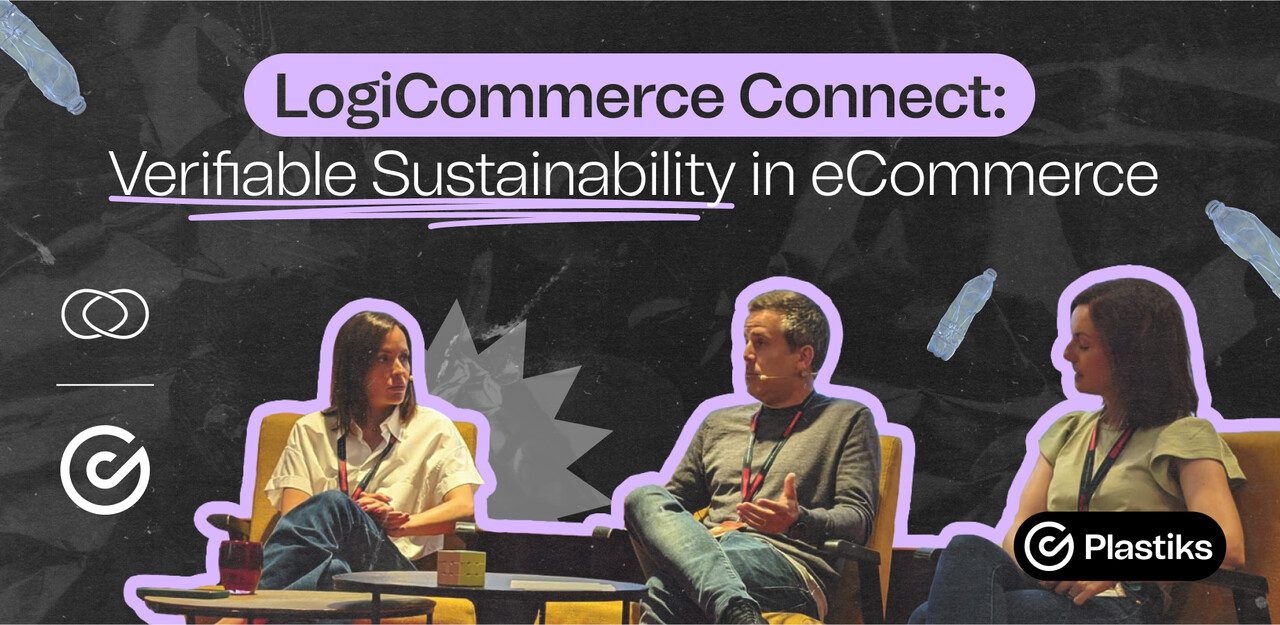Let’s Talk About Verifiable Sustainability in eCommerce (The Real Kind)

In May 2025, Barcelona hosted a new edition of LogiCommerce Connect, one of Spain’s most relevant events in the digital commerce ecosystem, organized by the eCommerce platform LogiCommerce.
This year, the event focused on one of the most pressing topics for the future of the industry: data-driven, verifiable sustainability. During the roundtable discussion “Let’s Talk About Sustainability in eCommerce (the real kind)”, moderated by Rubén Bastón (Marketing4eCommerce), three industry leaders took the stage: Yolanda Rosique (MUNICH and Duuo), Javier Dolcet (Dawa), and Ana Aguilar, COO of Plastiks.
It was a bold and honest conversation, grounded in data and impact, that reinforced a key truth: sustainability in eCommerce is not a trend—it’s a responsibility.
Can eCommerce Truly Be Sustainable?
The opening question of the panel wasn't easy to answer. While it may seem contradictory at first, research suggests that eCommerce can be more environmentally efficient than traditional retail—particularly when it reduces individual transportation to physical stores.
But that’s only part of the story. As the panel emphasized, real sustainability requires full accountability across the value chain, from sourcing and production to post-consumption and second life of products.
Plastiks: How to Deliver Real Sustainability with Verifiable Data
In an environment where regulations are tightening and consumer expectations are rising, brands need more than good intentions—they need verifiable evidence.
“Talking about sustainability without data is like talking about health without diagnostics.” — Ana Aguilar, COO of Plastiks

Plastiks has developed a blockchain-powered platform that transforms plastic recovery into a measurable, traceable, and reportable process. Our solution enables brands to:
- Digitally accredit their plastic recovery efforts with timestamped, geo-referenced, and invoiced evidence
- Issue plastic credits—1 credit equals 1 kg of verified plastic recovery
- Link each credit to a custom impact roadmap (social, environmental, or operational)
- Access real-time dashboards, downloadable reports, and public profiles for ESG reporting and regulatory audits
This model, backed by blockchain technology, ensures full traceability from action to credit sale—and gives companies a concrete, defensible way to differentiate themselves in sustainability without the risk of greenwashing.
In June 2025, Plastiks advanced this commitment by signing a joint venture with ECOTA (Germany) to integrate carbon reduction verification into our plastic recovery infrastructure. Now, each plastic credit reflects not only environmental cleanup but also contributes to climate action, fully aligned with frameworks like the EU’s CSRD directive.
Danone, Bayer Leverkusen, FC Barcelona, and Rosita Beer are already leveraging our platform to convert sustainability commitments into verified, high-impact results.
Plastiks is not a green promise. It’s a digital infrastructure that transforms sustainability into traceability—and traceability into real impact.
Traceability and Trust: What Today’s Consumer Expects
One of the major topics addressed during the panel was the hesitation many brands feel around communicating their efforts. Some do a lot but fear criticism if they speak up; others do little but over-communicate. In this landscape, traceability becomes a key driver of consumer trust.
The discussion also highlighted a common tension: consumers want sustainable products but often resist paying higher prices. This gap between stated values and actual behavior is particularly visible in the digital space, where responsible messaging coexists with ultra-fast consumption models.
Still, a mindset shift is happening. Buyers of sustainable products tend to be more loyal, value longevity, and understand long-term impact. The role of brands is to educate, remain consistent, and provide clear, data-backed information that supports responsible decision-making.
Dawa contributed an especially insightful perspective on circular economy models. Initiatives like Buy Back not only give products a second life but also bring in new customer segments. According to their data, 80% of secondhand buyers had never purchased from the brand before—and 70% later made a full-price purchase.
Conclusion: Purpose, Technology, and Verifiable Impact
Sustainability can no longer remain a marketing message. Brands that aim to lead must support their commitments with verifiable data and resilient systems.
Plastiks offers a concrete pathway for eCommerce businesses to not only reduce plastic impact—but also prove it, with traceability, measurable impact, and regulatory alignment.
The message from LogiCommerce Connect was clear: sustainability isn’t a future option—it’s a present necessity. And the tools to meet it with rigor already exist.
Ready to integrate verifiable sustainability into your brand strategy? Contact us and let’s build your impact roadmap together.
You might also be interested in:

